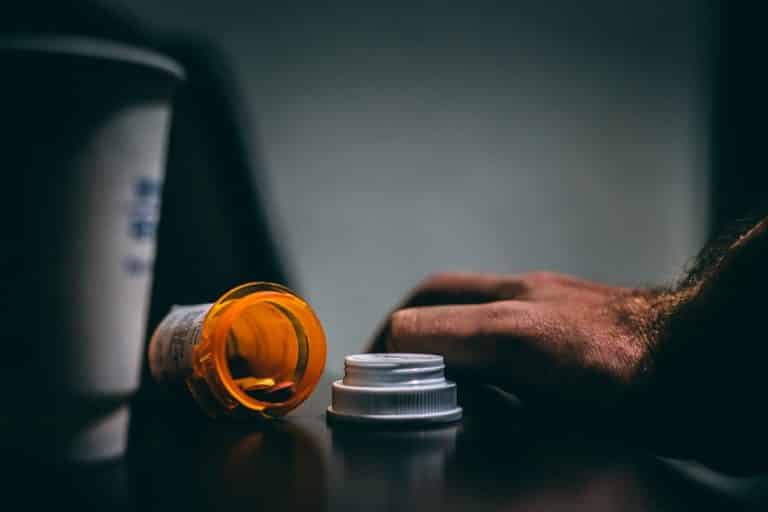Addiction can be an incredibly difficult thing to go through. It can break relationships, change personalities, and make you feel out of control.
So if you’re taking recreational drugs or other substances, you might be keeping an eye out for signs of addiction. But if you’re only looking at the physical effects (like tolerance and withdrawal), you might only be considering chemical dependency. Addiction comes with a long list of behavioral effects and life changes.
It’s smart to look out for both since chemical dependency might result in harmful or even fatal withdrawals. And dependency can certainly lead to addiction.
If you’re trying to figure out the difference between the two, keep reading. We’ve broken down the main differences and the key signs you or a loved one might have either one. In the case that you do have an addiction drug rehab may be the best solution for you.
1. Issue of Control
It is possible to have a chemical dependency without being addicted to the substance. For example, if you receive a prescription drug during a long hospital stay, your medical care team might have to increase the dosage as your body builds a tolerance to it.
Over time, you might get to the point where you have to be careful about getting off the medication when you don’t need it anymore. If your body has built a dependence on it, you might have to manage a potentially unpleasant withdrawal period. These are both key signs of physical dependence.
But in this situation, you likely wouldn’t be classified as having an addiction to the medication. Your intake of the drug is controlled, and any increases are carefully planned and overseen by the hospital staff.
An addiction situation can often be characterized by a loss of control. If you keep using the prescription drug after your prescribed treatment time, against doctor’s orders, you might put yourself at risk for addiction. Because you would be “going rogue,” you wouldn’t be able to benefit from the control of a hospital environment.
You might even find yourself changing the important elements of your life in order to keep using the drug. This is where chemical dependency and addiction start to come together.
2. Loss of Relationships
One major sign that someone might be dealing with a case of addiction is that they’re experiencing relationship issues or even loss of relationships. This likely won’t be the first sign of addiction, but it can help you figure out whether addiction is the right word to use for the situation.
Have you ever isolated yourself from people you used to be close to? This could be for a myriad of reasons, but if it happens in a pattern and feels out of your control, addiction might be the reason why.
This sign goes along with the issues of control. Isolation and relationship issues often happen when a person with an addiction has trouble meeting social obligations due to the lack of control over their substance intake.
3. Changes in Behavior
Another way to think about chemical dependency vs. addiction is to look at them in terms of physical changes vs. behavioral changes.
The physical changes that characterize chemical dependency have to do with the body’s response to the intake of the substance or a pause in that intake. This is what we mean by tolerance and withdrawal. If you think you have a chemical dependency on a substance, it is very important to make sure you can do a proper withdrawal.
This often comes in the initial stages of residential treatment or outpatient rehab centers. Withdrawal can be dangerous, so it’s important to do it gradually and have professional assistance if at all possible.
If you think you or someone you know might be dealing with addiction, you should consider the behavioral changes that accompany the physical ones. Have you gone out of your way to get more access to the substance? How far out of your way?
For many people with addiction, efforts to get more of the substance can take over their lives. Even if they want to do something else at times, they might feel unable to stop the process of getting and taking the substance.
People around them might start to feel that this person is not who they used to be. This is one of the things that can strain close relationships.
4. Family History
There are many substances out there that invite chemical dependency no matter who the user is. These substances provide a strong effect on the body but come with a buildup of tolerance over time, so the user has to use more and more of it to get the same effect.
If you’re wondering whether someone in your life is addicted to a substance, though, you might want to think about family history. Addiction is linked to genetic factors as well as environmental ones. So: does addiction run in this person’s family?
This won’t give you a definitive answer—a child of someone who has struggled with addiction can go their whole lives without experiencing addiction themself. But it can help give you clues if you’re concerned about someone’s health.
5. A Changing Chemical Dependency
Although chemical dependency is different from addiction, the two often come together. So if you are experiencing a dependency without addiction, you might need to watch out for signs of a transition into addictive behaviors.
Many people refer to substance-related addiction as “substance abuse.” This term is debated by some (because it is quite different from other things we call “abuse”), but it creates a distinction between controlled use and something else. Addiction often puts people in situations where they do things they otherwise wouldn’t want to do.
Help Is Out There
If you think you or someone in your life might have a chemical dependency or be addicted to a substance, you should know that this is a treatable condition. Even if you think the situation is a case of dependency but not addiction, it’s a good idea to see what professional services are out there.
The physical dangers of withdrawal are still real, and dependency will often lead to addiction.
And, if you need the extra push toward rehabilitation options, read our guide on when to consider rehab for addiction.

















